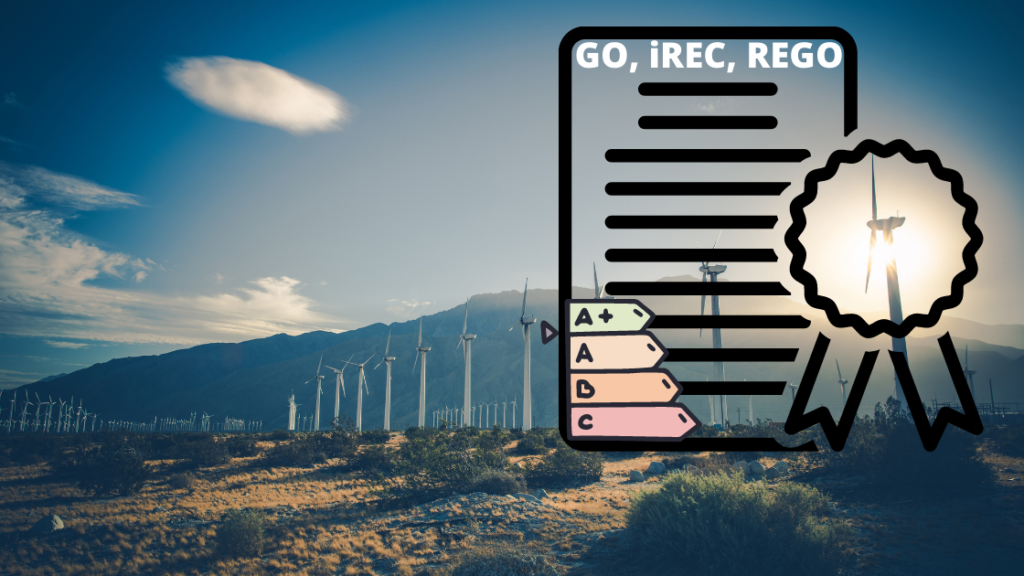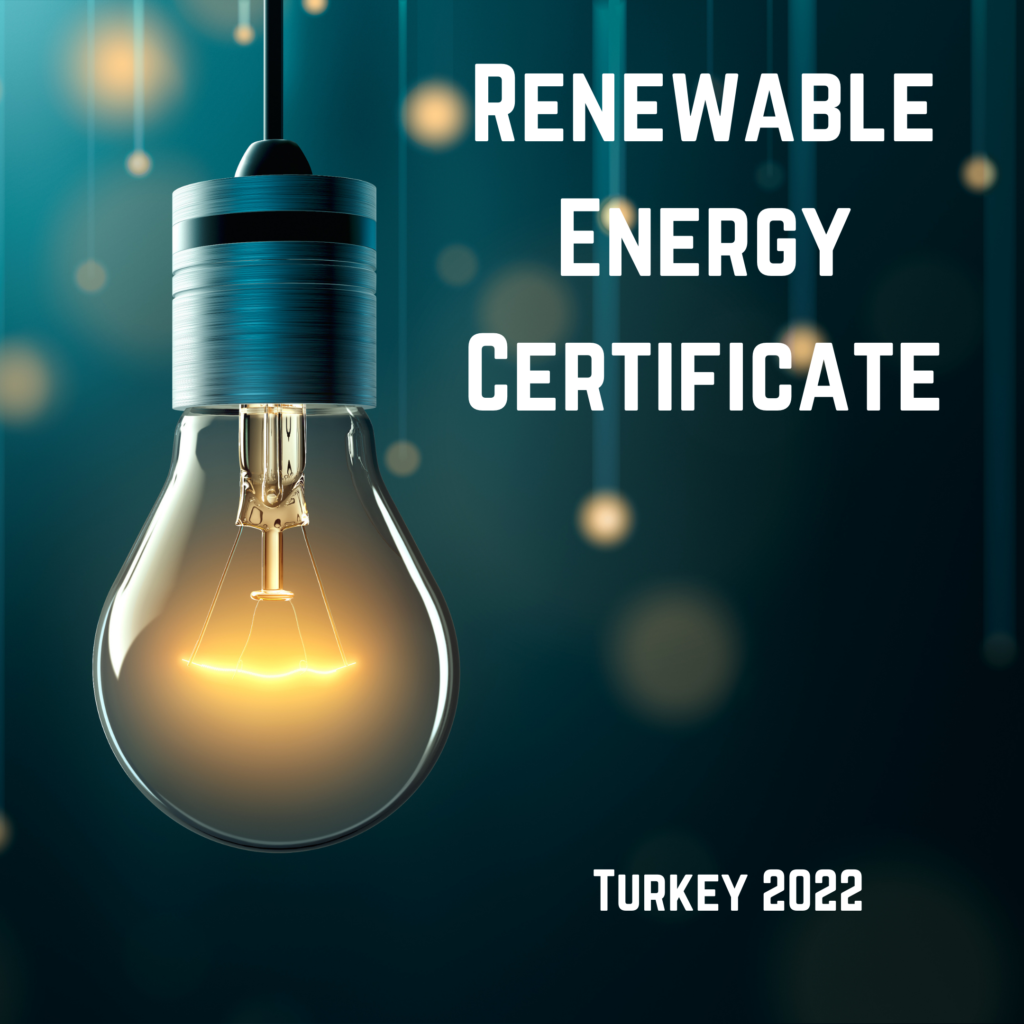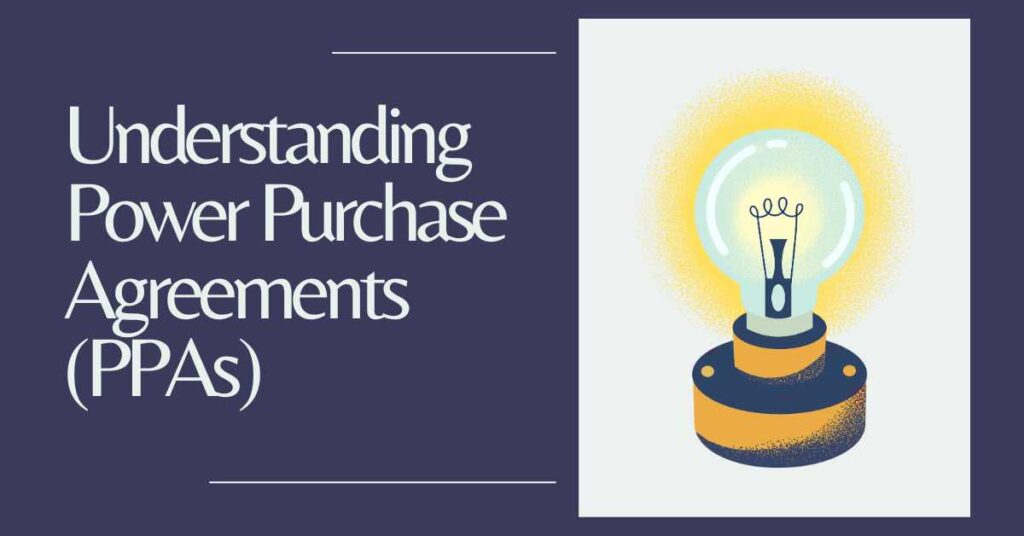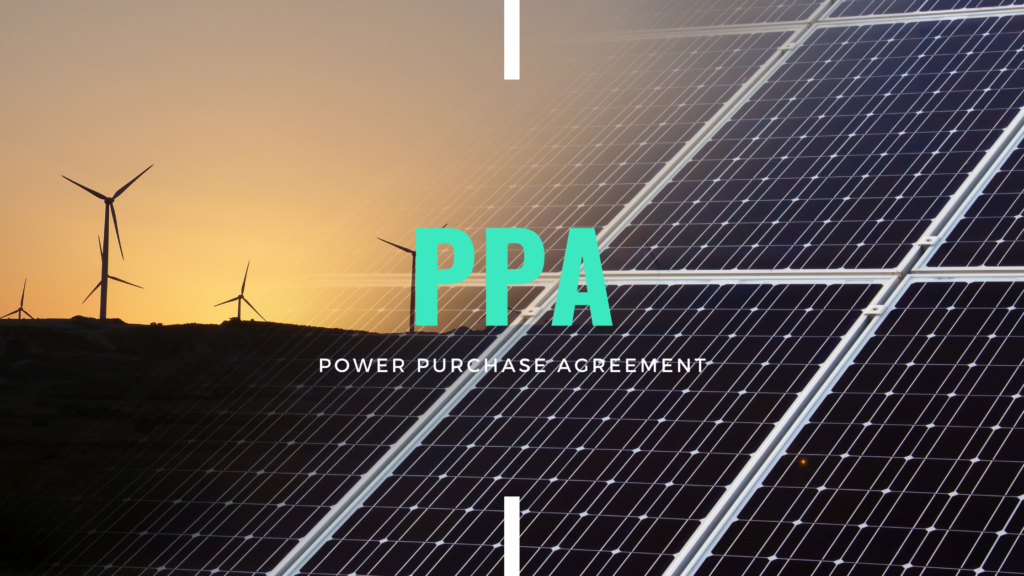What are renewable energy certificates used for?
Renewable certificates (RECs) or Guarantees of Origin (GOs) are documents that attest to the fact that a specific amount of electricity was generated using renewable energy sources. When businesses buy renewable certificates to cover their energy use, they can be assured that an equal amount of renewable electricity will be produced and sent to the grid.
Unbundled GOs. Renewable certificates which have been stripped from the electricity and sold separately. In this situation, “grey” electricity is purchased from the grid as normal under a regular electricity contract and then an equivalent number of the unbundled GOs are purchased separately from a 3rd party to offset the electricity consumed. Because a GO may only be issued and retired once, this method is deemed renewable and is in line with the RE100 guidance. Even if the electricity used emits greenhouse gases, this local consumption is countered by renewable energy production that does not create greenhouse gases elsewhere.
Bundled GOs. These are renewable certificates that are sold together with electricity which a customer buys from its local utility company. This sometimes can be called a “Green Tariff”, e.g. electricity that is sourced from 100% renewable production. It is critical that the electricity supplied is accompanied by an appropriate amount of GOs. Because only these GOs are proof that renewable energy was generated and then consumed exclusively by the customer. Without these, there is a risk of double counting, which occurs when an energy company “sells” the same renewable energy to several customers.
General Facts
| AIB | RE100 | |
| Entity | Association of Issuing Bodies | Association of companies committed to 100% renewable energy |
| GO Certificate | EECS Standard | EECS Standard & Local market certificates |
| GO Circulation | GOs can freely be transferred withing AIB members | Anywhere within the market boundaries: Europe is a single market |
| GO Cancelation | Must take place in the same country where | Anywhere within the market boundaries |
| Registry / Agent Restrictions | GO cancelation & registry often restricted to electricity suppliers | n/a |

EU GO Cancelation Guide

*Germany, Greece, and Ireland have no mandatory requirement for local GO cancellation. Therefore, as an alternative solution, ex-domain cancellation of Polish GO in a non-AIB market is possible. The Polish GO registry (TGE), being outside of AIB, allows GO cancellation for EU AIB member states. Hence, companies based on DE, GR, and IE can buy Polish GOs amount equivalent to their local consumption and still claim 100% renewable electricity.

*UK, HU, RO, and AL are non-AIB markets. Therefore, unbundled GO sourcing and cancelation can be done via France. Because the National EEX GO Registry in France allows ex-domain GO cancellation for non-AIB markets, such as UK, HU, RO, AL, Romania, and Bulgaria.
And although the AIB announced that the Hungarian Energy and Public Utility Regulatory Authority (HEA) which is the GO issuing body in Hungary is now a part of the AIB’s association as of 13 January 2021, the country cannot yet issue or transfer EECs GOs under the AIB since they are not yet members of the EECS Electricity Scheme. Therefore, once Hungary becomes a full AIB member state, it is likely that GOs would need to be canceled only locally by MEKH (Hungary).
Summary Table
| County | Comment |
| Germany | The German GO registry doesn’t allow GO cancelation by 3rd parties. Only the same electricity utility that delivers electricity to a customer has the right to cancel GOs. Because of this, GO can be sourced in non-AIB countries, such as Romania, as an alternative solution |
| Spain | The Spanish GO registry, managed by CNMC, allows both renewable energy producers and electricity retailers to cancel GOs. It’s also possible to cancel GOs in excess of a customer’s actual electricity volume consumption if needed. |
| Greece | Similar to Germany, the Greek GO registry allows GO cancelation solely by the same electricity supplier that delivers energy to a customer’s site. Because of this, GO can be sourced in non-AIB countries, such as Romania, as an alternative solution. |
| Italy | The Italian GO registry is managed by the GSE. Renewable electricity producers, power traders, and power retailers can open an account at GSE. However, only electricity retailers who supply electricity to a customer have the right to cancel GO on their behalf. |
| Ireland | Irish GO registry allows solely the same electricity company that delivers the underlying electricity. Because of this, GO can be sourced in non-AIB countries, such as Romania, as an alternative solution. |
| Czech Republic | The Czech Republic produces a minimal amount of renewable energy, resulting in limited GO availability and high pricing. Therefore, sourcing of non-Czech EECS GOs provides a more diverse and cost-effective alternative. Only power suppliers can cancel GOs for customers, according to the Czech GO registration (OTE). As a result, GO cancellation must be done through a local electrical provider. |
| Portugal | Portuguese GO registry (REN) allows to open a GO account to any legal person or entity and the cancelation is allowed by any GO account holder for, and on behalf of, an end-consumer. Also, there are no strict requirements for providing evidence of electricity volume consumption to REN, so it doesn’t monitor whether the GO cancelation volume matches real electricity consumption volume or not. This enables Portuguese customers to request to cancel any volume even in excess of their consumption (similar to Spain). |
| UK | The UK has its own local renewable certificates system (REGOs). Only local power suppliers are entitled to cancel UK REGOs for UK customers. Currently, however, UK’s energy regulator, OFGEM, also recognizes and accepts EECS GOs from the EU. Therefore, it’s possible to buy and cancel GOs for UK electricity consumption from the EEX French registry. |
| Hungary | Because Hungary has a small amount of renewable energy, it has a limited supply and expensive pricing for local GOs. As a result, purchasing GOs outside of Hungary in France provides greater variety and lower prices. This will change in 2022 when the Hungarian GO registry (MEKH) is fully integrated into the EU EECS Electricity Scheme. |
| Romania | The GO register in Romania permits only electricity suppliers to cancel renewable certificates. In terms of transparency, verification, and accounting, Romania’s green certificate industry has lowered standards than EU EECS GOs. |
| Albania | Because Albania currently lacks a local energy certification agency, the only option is to source and cancel EECS GOs ex-domain in France. |
If you want to learn more about the procurement of renewable electricity, please check my next article about PPAs. You can also learn about the most popular PPA contracts in the article here. Liked the article? Please comment below!
Curious to learn more about PPAs? Our guide offers a concise roadmap to navigate Power Purchase Agreements (PPAs). Learn more here.









Hi Kyrylo,
First of all, I am a big fan of your articles, where most authors are vague about the subject of GOs you tell it clearly. I am researching the effect of the gap, the difference between the target RES and the RES level in 2020, has on the GO prices. Therefore, I have a couple of questions to which I struggle to find a clear answer.
-There are national and international GOs, but there are all freely transferable across member states of the AIB, how does this work? Are renewable portfolio standards (RPS) set for national GOs, or can energy suppliers always buy hydrogen GOs to meet their quotas?
-Does every country subdivide its renewable energy quota over different sources?
-Do you know where I can find the data regarding GO prices of different RES and different countries?
My research is for academic purposes only!
Kind regards,
Hidde Tierolff
Utrecht University
+31629014888